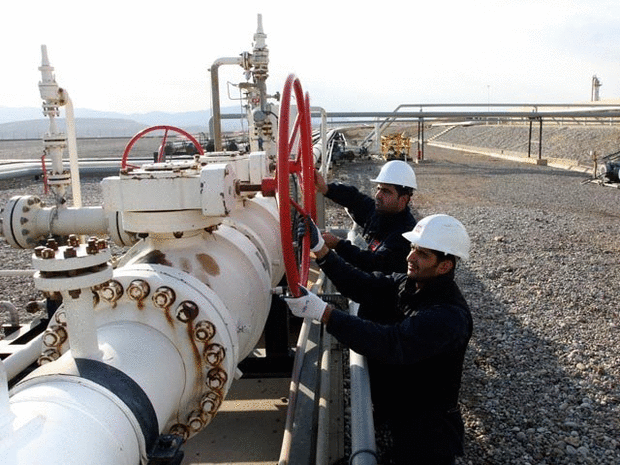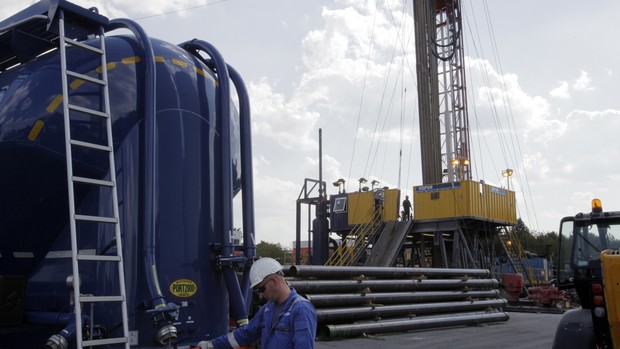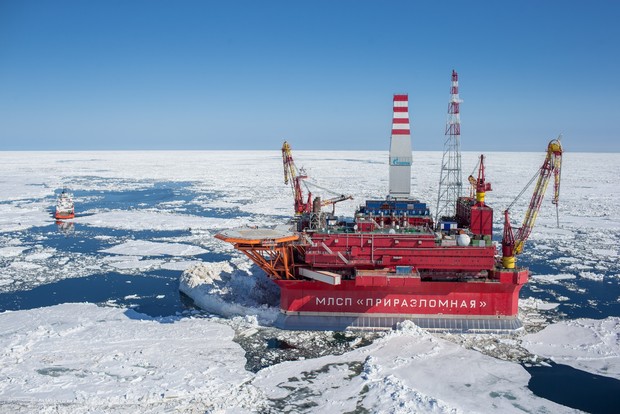Aleksander Sharov: ‘Iran’s statements on oil – only concussion of the air’
The expert on Iran believes that Tehran is bluffing by its refuse from oil production freeze
Iran declares that it is not going to refuse from oil production increase. The Islamic Republic is ready to freeze production when reaching the level of 4 million barrels per day. The talks between the foreign Ministers of Russia and Iran, held on 15 March, was to no avail. Thus, according to the director of group of companies RusIranEkspo Aleksander Sharov, Russia has nothing to fear. What is behind the statements of Tehran, what will be the price of oil in the next five years and what Tatarstan citizens do in Iran, the expert writes in his column to Realnoe Vremya.
Gallery play
The Iranians, refusing to freeze oil production at the current level, play to the gallery. They cannot ignore Russian demands if our С-300 protect their sky from their favorite 'friends' in the region.
They need some kind of clearance for manoeuvre. They claim that in order to reach oil production at 4 million barrels it is necessary to invest tens of billions of dollars. Who will give it to them?
Sanctions against Iran have not been fully lifted. The very limit – Iran was imposed with fines for the twin towers in New York at $10.5 billion. All money they hoped will be arrested soon. Therefore, Tehran will not be able physically to increase these amounts. The country will never reach 4 million barrels.
Last year, 114 wells were drilled in the country. In order to maintain current levels at least, it is necessary to drill 860 wells. They will get nothing by spells or fatwas. It is necessary to drill, and it requires money.

'Tehran will not be able physically to increase these amounts. The country will never reach 4 million barrels.' Photo: nefttrans.ru
'Western companies are reluctant to go there'
In order to get money, it is needed to stabilize its own production at least and to invest in increasing of the yield of wells. They need to let Western and Russian companies (Tatneft, LUKOIL, Rosneft, Zarubezhneft). While they fill the air with words, eventually there is no any action.
Western companies are also reluctant to go there. The United States canceled the visa-free regime for the Europeans who often went to Iran.
In the oil companies there must be some fringe groups whom they can say: 'You will go there and we will pay you a higher salary'. It is probably possible to find such people who are in love with the Iranian exotics. But it's not enough for large investments.
Sanctions against Iran helped to reduce the country's dependence on oil exports to some extent. The Iranians raised their own refineries, they walked away from the imposed by Westerners schemes to give oil for processing to Qatar and then take away refined oil products. Now they started to process oil themselves.
For 4-5 years, Oil Ministry shifted significantly from Western standards. The drift was, but not enough. They still hope for oil companies running to them. But Total, Eni, BP and others pay off their debts to Iran by so-called investments. But, in reality, no one has really invested serious amounts.
The Iranian negotiating manner
Such Iranian gallery play – it's a peculiar manner of negotiating. In general, it is difficult to negotiate with them. However, if you don't like to talk to Iran, we have Pakistan, negotiate with Emirates or Algeria. However, if Tehran still has some economic reasons to agree with them, there will be a continuous policy. In Iran, unlike these countries, you can move. It should be borne in mind that they don't offer anything on a silver platter and will not pay anything in absentia.
However, Russia has the experience and know-how that being applied, and the negotiations succeed.
I know that citizens of Tatarstan from Naberezhnye Chelny are working in oilfield services very stably. Schlumberger is working hard on the Iranian oil services, using, by the way, our Russian contractors who go there from Western Siberia. And Schlumberger writes these contracts, the Iranians pay, and the part of money goes to Western Siberia.

'Schlumberger is working hard on the Iranian oil services, using, by the way, our Russian contractors.' Photo: forbes.com
That's not a good idea for the Tatarstan President
Thus, from the Russian companies I have not noticed the actual movements to Iran. Their last trip to Iran was connected with Turkmen debts.
Our companies do not go even to the oil-fields.
Do they really think that they can gain a foothold in the Iranian market through a solution of, say, the President of Tatarstan Minnikhanov? KAMAZ has already assured itself in it. They closed one plant, now they will bother about another. That's not a good idea for the Tatarstan President to move the enterprises. The companies themselves should scour, negotiate, take a good look at their partners.
Iranians are waiting for those companies that will really work and not those that have unfounded confidence. And do not really take into account the intergovernmental agreements. They want those who will work 'in the fields'.
For example, Halliburton works there. Two years ago, the company earned $264 million of net profit in Iran.
'They take decisions at the local level'
It should be borne in mind that in Iran almost nothing is done without force organizations. There are a number of companies where are the funds of the Pension Fund from Iranian Revolutionary Guard Corps (IRGC), Fund of Poor and other organizations.
Their amounts affect the oil companies, what share of business can be sold to whom. They have serious money on the oil service, they are also authorized to take any technical decision. They influence a technical policy of the company: what equipment to take, to use.
And then there is the technical certification of the equipment and technology in Tehran. In the capital they only sign the papers, they take decisions at the local level.
'Neither the West, nor the East'
Whom will they choose as partners after the lifting of sanctions – Russia or the West? The Iranian elite was educated in the West, they often travel to Europe and America. But the last trip to Europe was a cold shower for them: not very smooth negotiations.
The Iranians have a commandment: 'Neither the West, nor the East, but the Islamic Republic of Iran'. They are pragmatist people: the price — the quality. If they have the same conditions from the Russian and Chinese companies, they will choose Russian. If the same conditions from the Russian and European companies, they will choose European. If we offer the best conditions, they will choose Russian.

'Russia, in such conditions, should go to the Arctic, Eastern Siberia, offshore fields and to intensify their work there.' Photo: sdelanounas.ru
However, our companies, Tatneft for example, do not even spend money on travel and study of joint proposals. BP simply just does not get out of the trips. They have a special plane to fly there to study the oil-fields conditions 'in the fields'.
$300 per barrel
Everyone knows that Iran's statements on oil – only concussion of the air that affect the oil manipulations on the stock exchange. Even if they increase production by 600 thousand barrels, it's such a small thing. They can turn a blind eye and rely on Saudi Arabia, the United States.
The USA with its shale oil are working at a loss. They have 5% of bank loans non-refundable. America also watches their money. So, the oil needs to increase.
All the more, light crude is over. Light fields will be depleted soon. In five years there should be the rise of oil to $300 per barrel. Therefore, it is better now to raise price to avoid such shocks for the world economy.
Russia, in such conditions, should go to the Arctic, Eastern Siberia, offshore fields and to intensify their work here.